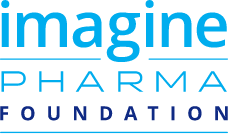The Imagine Pharma Foundation
Advancing metabolic disease research for Veterans and the community.

Our Mission
Dedicated to advancing metabolic and diabetes research, providing access to cutting-edge therapeutics and treatments, and, advancing education and opportunities in research, and supporting other non-profits focused on diabetes research and care. The foundation has a particular emphasis on serving Veterans.
Taking Care of Our Veterans
Metabolic disease is a broad collection of diseases and/or disorders that disrupt normal metabolism; the process of converting food to energy on a cellular level. One of the most prevalent of these diseases is Diabetes. Diabetes is a chronic metabolic disorder characterized by elevated blood sugar levels. It is a major global health concern, affecting millions of individuals worldwide. Veterans are particularly vulnerable to diabetes due to factors such as exposure to military service-related stressors and environmental toxins.





Veterans
Approximately 25% of veterans have diabetes, compared to 10.9% of civilians. More than 30 million Americans have diabetes, and 84 million more are at risk to develop the disease. Many Veterans have the disease, including some who developed it as a result of being exposed to herbicides while serving in Vietnam.
Gender
Male veterans are more likely to have diabetes than female veterans, with a prevalence of 24.6% vs 17.9%, respectively. This trend is also observed in the civilian population, with male civilians having a prevalence of 12.7% vs 9.3% for female civilians.
Age
The prevalence of diabetes increases with age in both veterans and civilians. However, veterans are more likely to be diagnosed with diabetes at a younger age. For example, 16.3% of veterans aged 25-34 have diabetes, compared to 7.1% of civilians in the same age group.
Hospitalization
Veterans with diabetes are more likely to be hospitalized for complications of diabetes than civilians with diabetes. For example, 1.9% of veterans with diabetes are hospitalized for diabetic ketoacidosis (DKA) each year, compared to 0.8% of civilians with diabetes.
Mortality
Veterans with diabetes are also more likely to die from diabetes than civilians with diabetes. The standardized mortality rate for diabetes among veterans is 2.6 per 1000 person-years, compared to 1.9 per 1000 person-years among civilians.
Veterans
Approximately 25% of veterans have diabetes, compared to 10.9% of civilians. More than 30 million Americans have diabetes, and 84 million more are at risk to develop the disease. Many Veterans have the disease, including some who developed it as a result of being exposed to herbicides while serving in Vietnam.
Gender
Male veterans are more likely to have diabetes than female veterans, with a prevalence of 24.6% vs 17.9%, respectively. This trend is also observed in the civilian population, with male civilians having a prevalence of 12.7% vs 9.3% for female civilians.
Age
The prevalence of diabetes increases with age in both veterans and civilians. However, veterans are more likely to be diagnosed with diabetes at a younger age. For example, 16.3% of veterans aged 25-34 have diabetes, compared to 7.1% of civilians in the same age group.
Hospitalization
Veterans with diabetes are more likely to be hospitalized for complications of diabetes than civilians with diabetes. For example, 1.9% of veterans with diabetes are hospitalized for diabetic ketoacidosis (DKA) each year, compared to 0.8% of civilians with diabetes.
Mortality
Veterans with diabetes are also more likely to die from diabetes than civilians with diabetes. The standardized mortality rate for diabetes among veterans is 2.6 per 1000 person-years, compared to 1.9 per 1000 person-years among civilians.
Programs and Services
The Imagine Pharma Foundation addresses metabolic disease and diabetes through multiple programs and services, each with a distinctive focus on helping improve research, quality and access, opportunity, and education.
Advancement
Research Advancement
Fund and Support innovative metabolic and diabetes research projects.
Access
Therapeutic Access
Provide Access to cutting-edge metabolic and diabetes treatments for Veterans and communities in need.
Support
Non-Profit Support
Provide assistance and research/treatment opportunity vetting to other metabolic- and diabetes-focused non-profits, especially those focused on Veterans
Awareness
Education and Awareness
Disseminate educational materials on metabolic disease and diabetes prevention and management as well as provide internship opportunities to aspiring scientists and clinicians.



